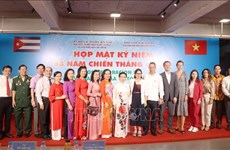Vietnam marks step towards assumption of ASEAN chairmanship
Under an article published in The Diplomat on November 8, Vietnam officially took over ASEAN’s annually rotating chairmanship from Thailand, marking yet another step towards its assumption of the role in 2020.
Given Vietnam’s increasingly active role in ASEAN, the full range of regional issues that will need to be addressed, and the challenging context that Hanoi will be operating in, there will no doubt be much to watch in the year ahead.
Due to a range of steps including reforms at home (Doi Moi) and increasing integration with the outside world, Vietnam has rapidly emerged as one of the fastest-growing economies and dependable partners in Southeast Asia, since joining ASEAN in 1995.
Within ASEAN, including as chair twice in 1998 and 2010, Vietnam has helped advance several priorities, including closing development gaps among Southeast Asian states, developing new institutions, and engaging other powers.
In 2020, the regional and international environment is also facing growing stresses: China’s assertiveness and its inroads in the South China Sea; uncertainties about the U.S. foreign policy.
However, Vietnam has made significant inroads in strengthening its relationships with major powers, including the United States, Japan, Australia, and the European Union. Vietnam is no doubt aware of this challenging context, along with the fact that it has other domestic and foreign policy priorities to deal with as well, whether it be a its simultaneous holding of a non-permanent United Nations Security Council (UNSC) seat.
Observers can expect the agenda for Vietnam’s chairmanship to be a mix of continuity and change in 2020: carrying forward the work of previous chairs while also being cognizant of timelines in various aspects of ASEAN’s development and advancing some priorities of interest to Vietnam itself./,













